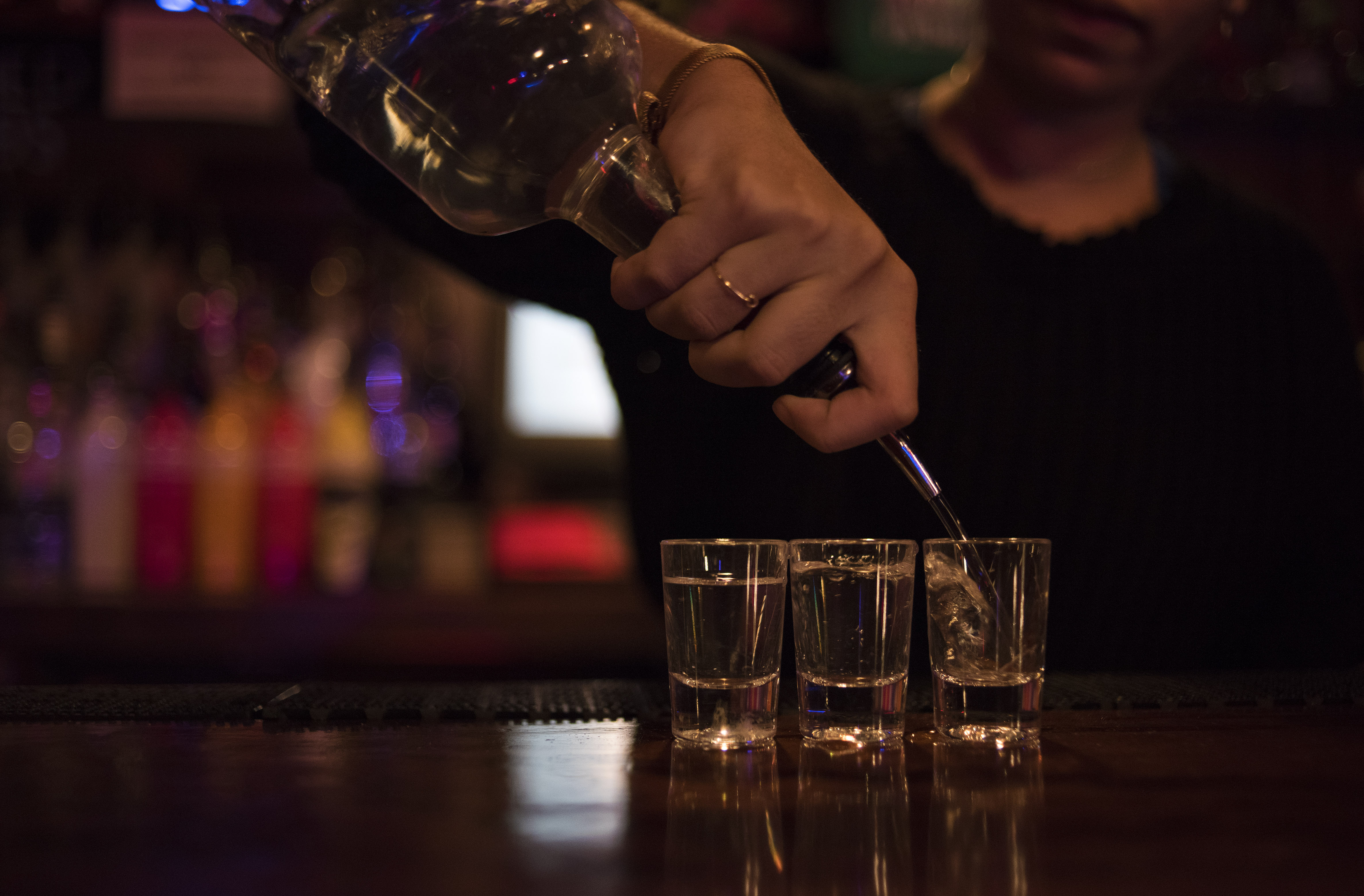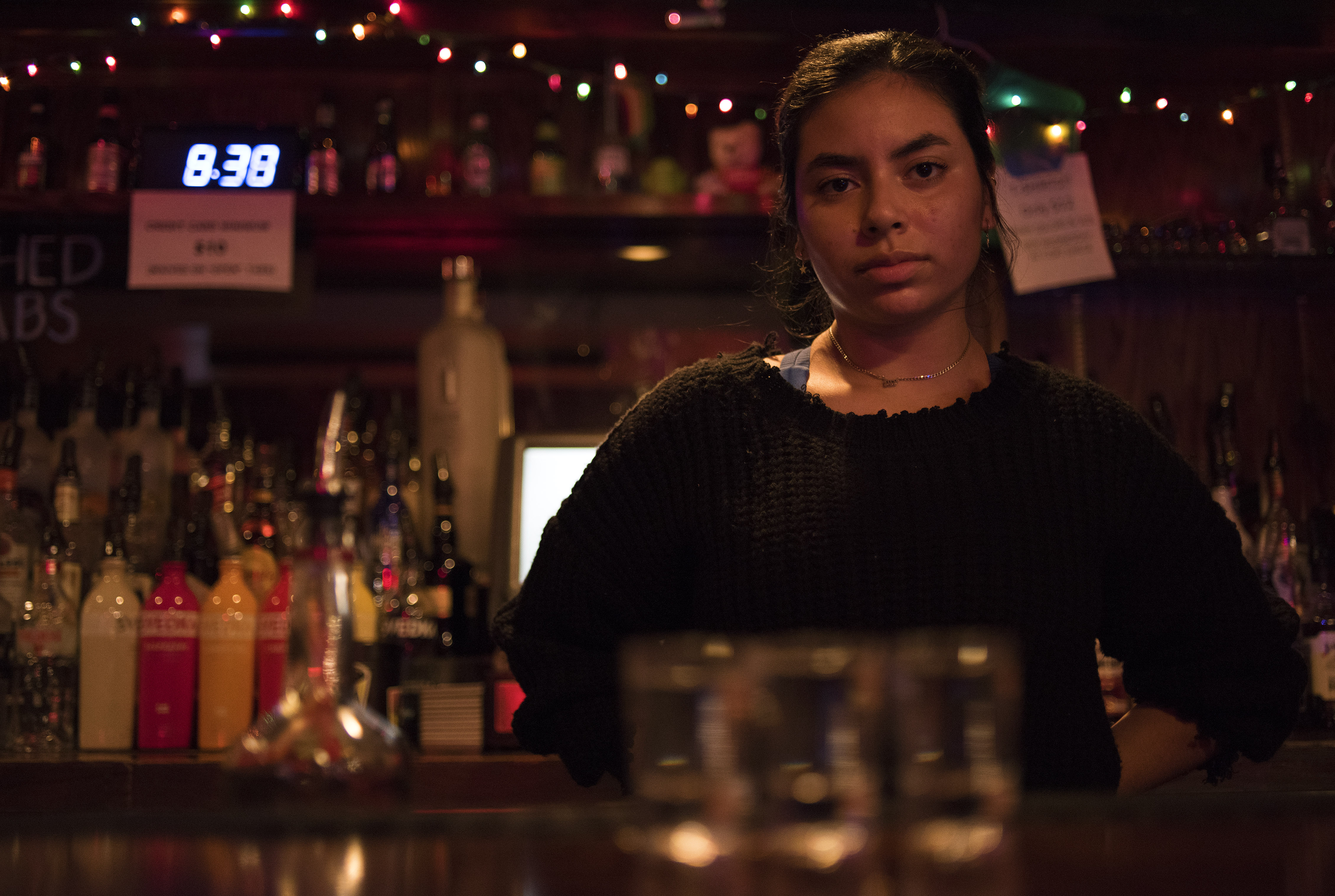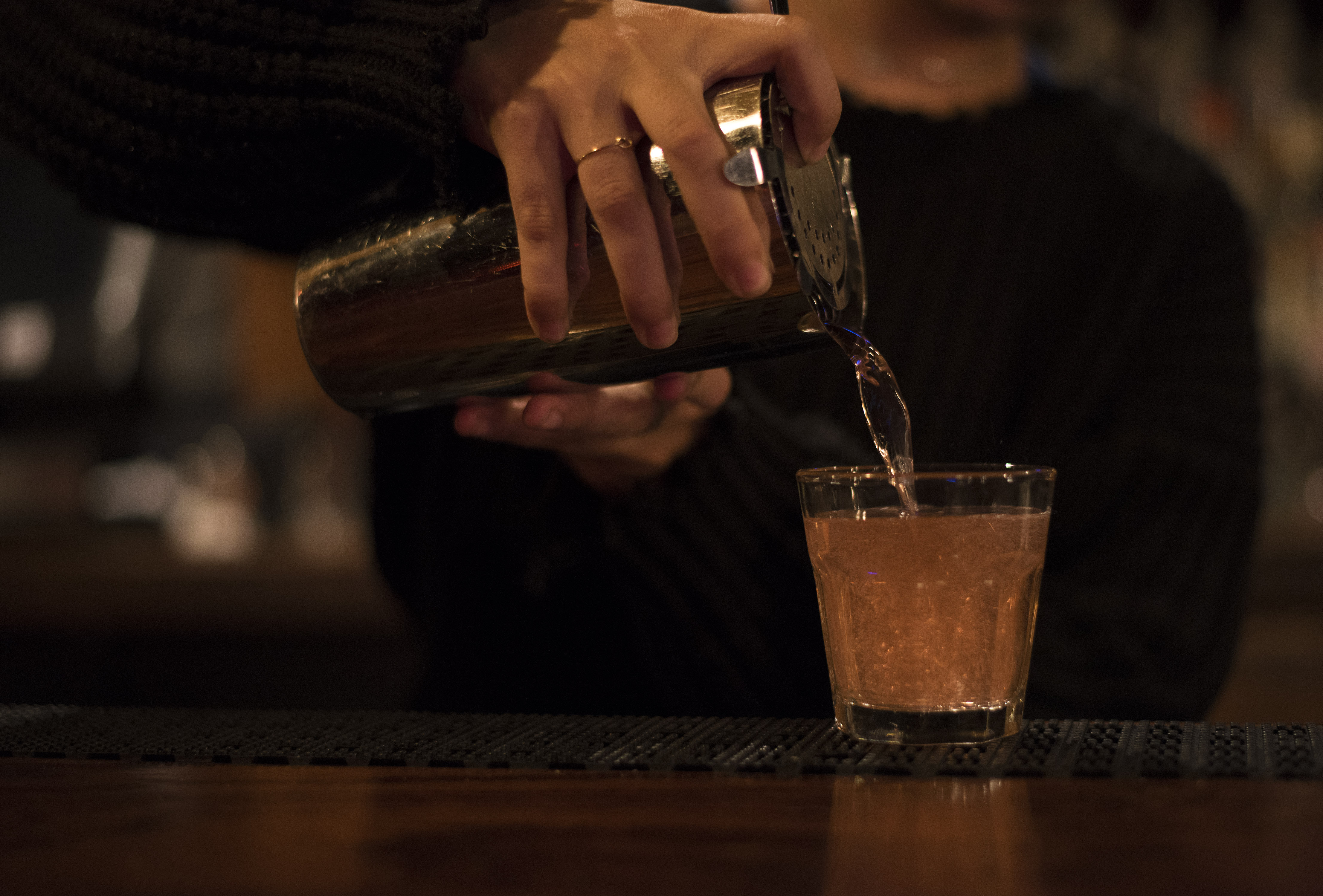Whether it’s draining a fishbowl at Level B or heading to Loco for karaoke night, taking part in the local Ithaca bar scene is a rite of passage that many Cornell students are familiar with. Not many students, however, know much about what happens behind the bar.
The Sun caught up with three student bartenders who work three of collegetown’s watering holes — Hideaway, Loco Cantina, and Level B. Since the age limit for bartending is 18 years old in New York State, bartending in college is a viable opportunity for many students.
Students initially seek out bartending for a variety of reasons. For Stephanie Neitlich ’21, a bartender at Hideaway, bartending began with a goal to push herself in a more extroverted direction.
“Bartending has definitely helped me break out of my shell,” Neitlich said. “I’m much more confident now in starting conversations with strangers, no matter where I am, which is something I definitely wouldn’t have felt comfortable doing before.”
The social abilities and friendliness that bartending requires allows many student bartenders to not only get out of their comfort zones, but to develop other important people skills.
“A big part of bartending is listening to people,” explained Leia Chung ’20, a bartender at Level B. “A lot of people come in, especially older locals who sometimes come alone on a slow weeknight, and they’ll just tell me a lot of their stories. Sometimes they’ll get really personal. I think that it’s because it’s easier to open up to strangers who have no idea who you are.”
While students enjoy the skills that bartending allows them to develop, all of them had one common need coming into it: to make some extra cash.
“Most on-campus jobs pay minimum wage, which is a stark contrast to the extremely high costs of housing and food — as well as all of the other inevitable expenses that come with being a Cornell student,” said Manya Weintraub ’21, a bartender at Loco Cantina. “The fact that most on campus jobs pay $11.10/hour when a single meal swipe is $16.45 (for dinner) is a very sad and unfortunate reality. Choosing a tipped job is, of course, a gamble but, for the most part, ends up being worth my time.”
As a part of their job, bartenders do a whole host of tasks starting at around 9 p.m., and sometimes don’t leave until the wee hours of the morning at 3 or 4 a.m.
“The bar is usually slow until about 11,” said Weintraub. “Some people come in for happy hour or if there is an important sports game happening, but generally it won’t get busy until later. The bartenders get other things done, like restock [drinks], cut up fruit, and tidy up [the bar] to prepare for the busy time.”
Once the bar begins to get busy, bartenders decide on how to tackle the crowd.
“[The other bartenders and I] kind of divide up the bar,” said Chung. “For example, I’ll take the left side of the bar, and someone else will take the right and the middle. Whoever comes into our section will be rung up by us and served by us. We try not to go into other people’s sessions so that it runs…smoothly.”
The hectic environment rowdy patrons mean that bartenders have to constantly be on their toes.
“I think that there’s a stigma that bartending is an easy job when it’s actually pretty hard,” said Neitlich. “It’s much more than pouring liquid into a cup. Sometimes I’ll be taking five different drink orders at a time while also running a tab and ringing someone’s card up.”
Of course, working in a bar means that student bartenders are always surrounded by people at various levels of inebriated. This can sometimes lead to unruly behavior.
“One night, this girl thought that her friend was getting a little too drunk so she ordered him a glass of water,” said Neitlich. “He got really mad that it wasn’t alcohol and threw the entire glass of ice water all over me. I was literally drenched in ice water, and my boss kicked the guy out, of course. But working in a bar is so fast-paced that I didn’t really have time to react or even clean myself off. It’s always just on to the next thing … so I just worked that night while my clothes were completely wet.”
Other student bartenders noted that working a service job oftentimes means that customers are more persistent in their propositioning.
“People are drunk, so they’ll definitely flirt and leave phone numbers,” said Chung. “Usually they’ll just write it on the receipt, but I’ve had instances where people will ask for my number and I just have to say no.”
Some customers could also take their flirting too far.
“There was this guy once who was really flirty and annoyingly rude the whole night and it was getting on my nerves,” recalled Weintraub. “And then, instead of leaving a tip, he wrote his phone number where you are supposed to write the tip. It took all of my willpower not to just charge his card with a 10 digit tip.”
Despite the commonly known fact that bartending is a tip-driven job, the bartenders told The Sun about multiple occasions when people have skimped on their gratuity.
“Leave a tip for your bartenders because we do more than you think we do,” said Neitlich. “For you to not leave anything is really rude; it’s the same thing as not tipping your waitress.”
Since many students said they get into bartending because they need the extra money, those tips go a long way.
“I am certain that everyone is aware that their tips make up our paychecks,” said Weintraub. “I know it can be unsettling to be handed a bill and be expected to pay even more, but really, if you can afford to drink in a bar, you can afford to tip your bartenders. There are many cheaper ways to have a drink, so the extra few dollars in tip shouldn’t be where the sacrifice is made.”
On the upside, student bartenders reported that the money they make while bartending averages out to be more than what they would get with a stable hourly wage. Because of this, many students choose to bartend and deal with occasional unsuccessful nights rather than look into other job opportunities.
Additionally, in the wake of IFC’s banning of social events for the fall semester, the employees report that bars may become more busy as students find different outlets for their social schedules.
“Halloweekend was a crazy night for us,” Neitlich said, citing the ban as the reason. “We’re doing a lot better business than before, so I guess the frat ban is good for bars.”
The IFC ban does still allow for date night activities.
Larger crowds mean that bartenders have to be on top of their game.
“I’ve learned a lot about communicating effectively, especially when it’s really busy,” said Chung. “It’s loud, people are dancing, and figuring out how to deal with them all means that we have to … constantly think on our feet.”
Since Ithaca law requires that alcohol cannot be served past 1 a.m., every bar closes at 1 a.m. However, once the lights turn on and the last straggler exits, the bartenders’ nights are far from over.
“We put everything away, wash the bar, clean dishes, mop the floors. Hopefully, that means we’ll be home before 2 a.m.,” said Weintraub.
The long nights can be grueling, especially for Cornell students with other responsibilities and classes in the morning. However, these student bartenders noted that the benefits of their job outweighs the inconvenience of late hours.
“I really think that if you’re considering bartending, then go for it,” said Neitlich. “Before I started, I had this idea in my head of the type of person a bartender should be, like really extroverted, attractive, someone who knows their alcohol well. But it wasn’t like that at all. Anyone should apply if they’re interested. It’s definitely made me a better person.”






